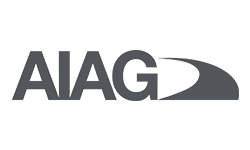AIAG & VDA FMEA • AS9145 (APQP/PPAP) • IN-PERSON WORKSHOP • LIVE VIRTUAL WORKSHOP
This Live Virtual Workshop will assist in the execution of Process FMEAs using the AIAG & VDA FMEA Handbook. After attending this course, you gain the ability to describe the benefits of a robust technical risk analysis using the PFMEA development approach described in the AIAG & VDA FMEA Handbook, execute a PFMEA applying the 7-Step approach, evaluate the consistency in PFMEA application, measure the effectiveness and efficiency of PFMEA within your organization with linkage to the Cost of Poor Quality (COPQ), and develop an Implementation Plan for your organization to adopt the AIAG & VDA FMEA. This course also provides insight and hands-on experience with how to develop and implement Control Plans for your manufacturing processes.
Select an existing open enrollment session, or contact us for additional training options.

2 days (Live Virtual)
Equipment Needed
A second monitor is highly recommended for optimal learning environment.
Recommended for Core Process FMEA Team to include process/manufacturing engineers, ergonomic engineers, process validation engineers, quality/reliability engineers, project managers, FMEA moderators/facilitators, auditors, and other roles with a limited working knowledge and background with AIAG Process FMEA.
Combining the best of online and traditional face-to-face learning, Live Virtual Workshops use web-based teleconferencing technologies to bring your team together with our experienced instructors in an interactive learning environment. We have always believed interactivity, application, and group discussion are critical parts of an effective and sustainable learning experience. To ensure that these values hold true, and every participant can build the same caliber of knowledge, each workshop includes the following Live Virtual functionality and features:
Plexus provides training and consulting for these standards as well as AS9110C for maintenance, repair & overhaul (MRO) process, and AS9120B for organizations that procure parts, materials and assemblies.
Build foundational knowledge on Design and Process FMEA fundamentals and linkages, linkages with Control Plans, and the connection between FMEA the Cost of Quality (COQ).
This eLearning course provides you with a clear understanding of the principles and values driving the new AIAG & VDA FMEA approach.
Subscribe to our newsletter.